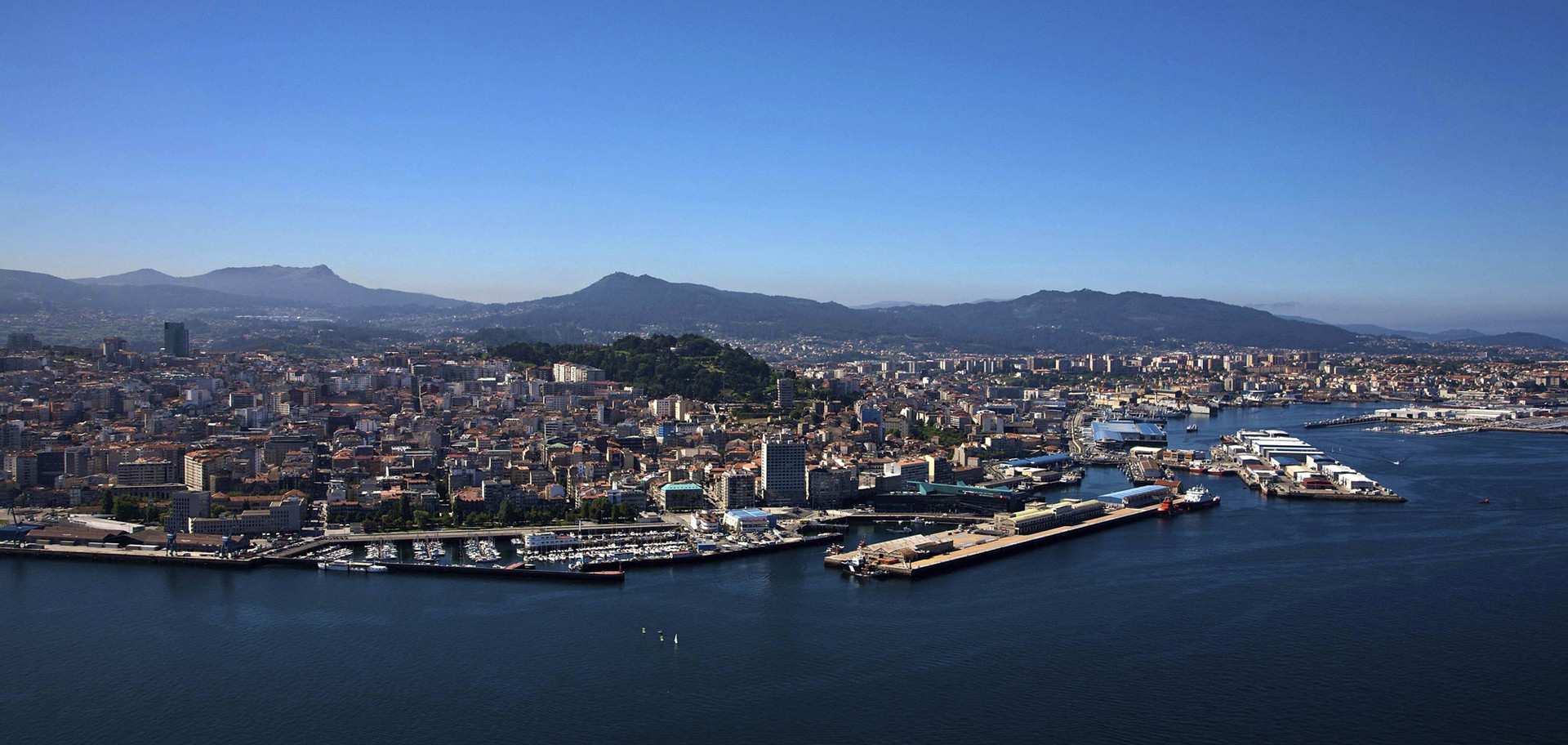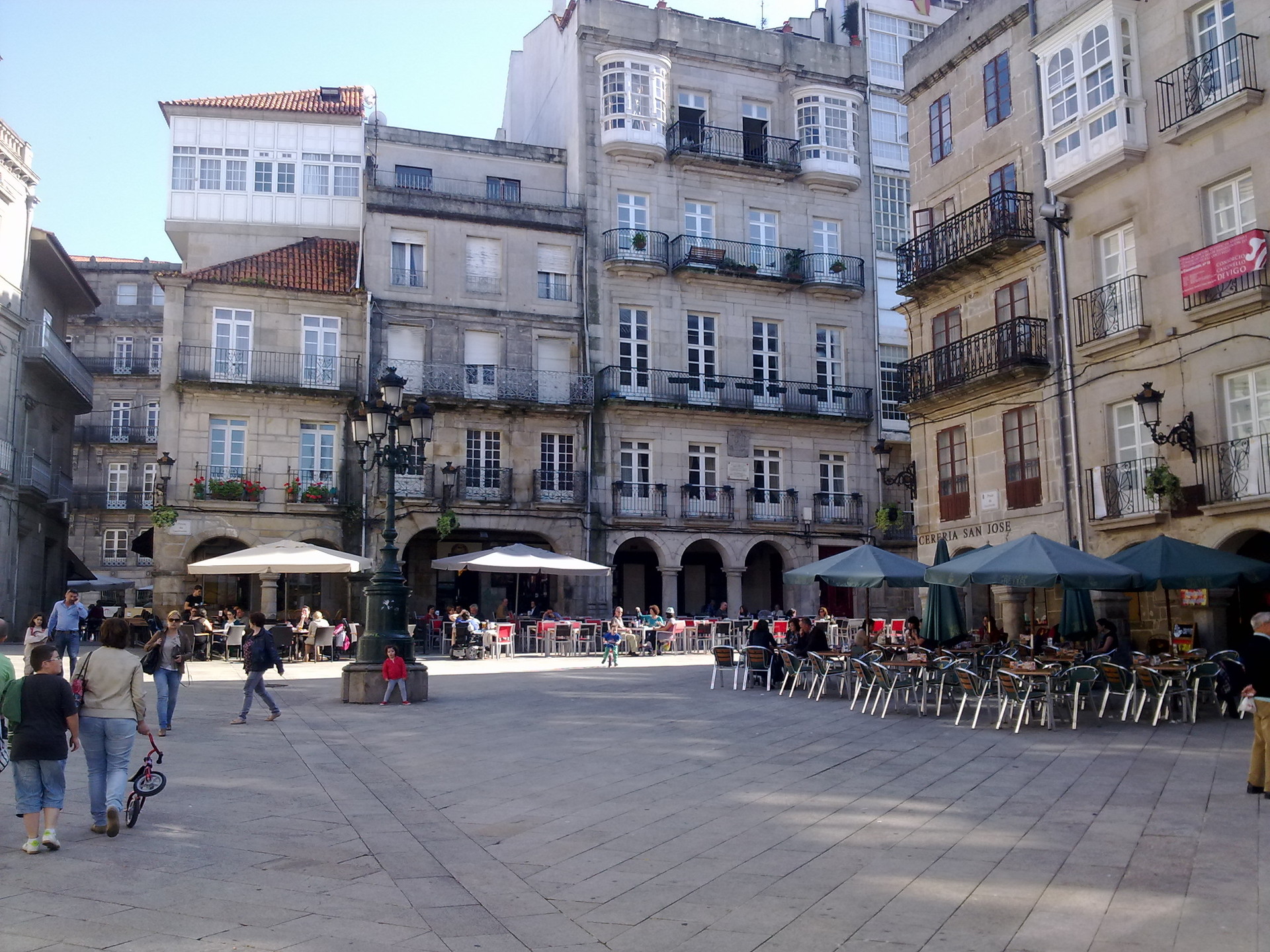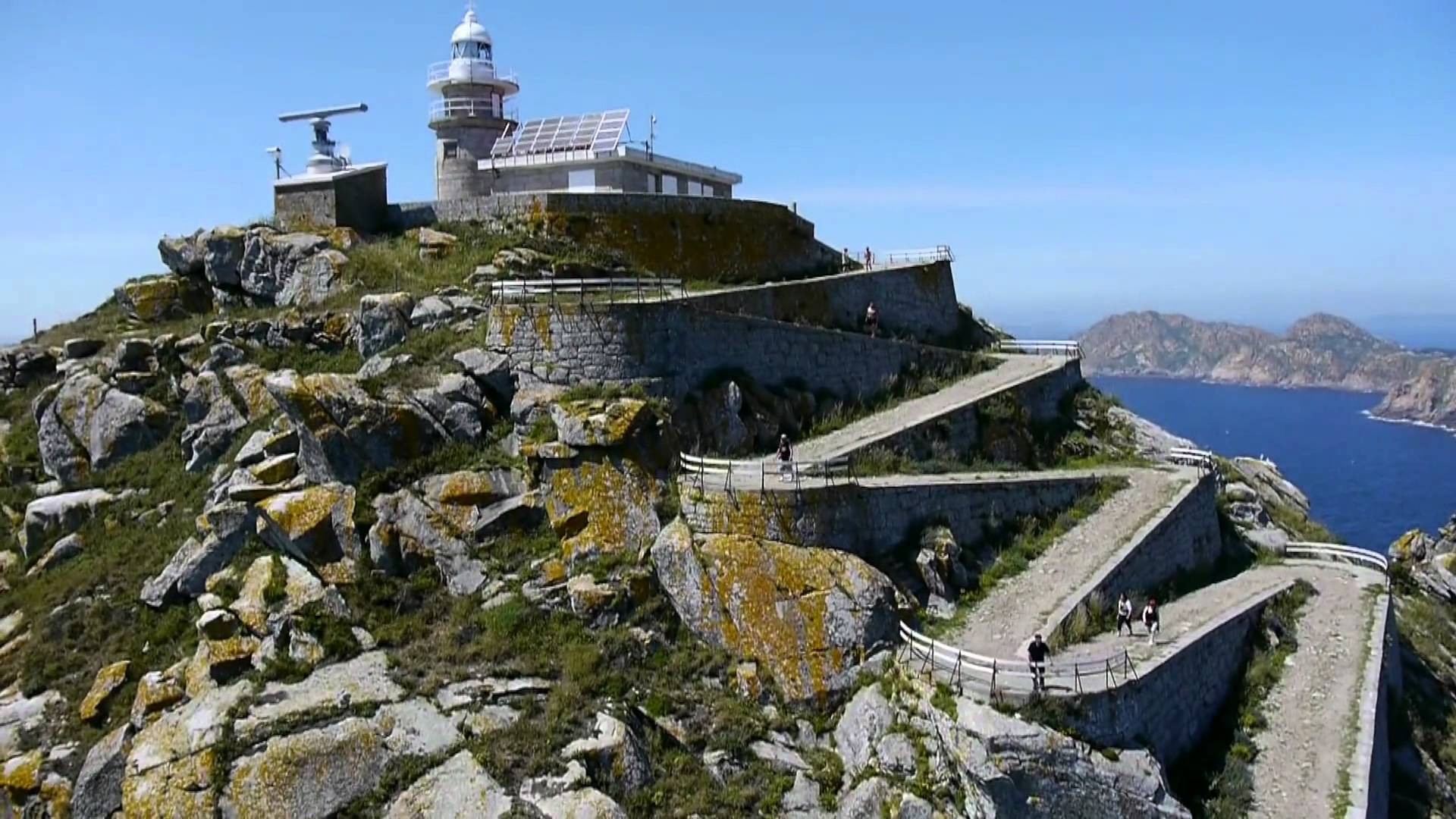Discovering Spain
Why did you choose to do your Erasmus in Vigo, Spain?
Vigo wasn't always my first choice. First I thought about going to Maribor, in Slovenia, but since I was going completely all by myself, I must confess that I was fearful of not being able to adapt. So, my second choice leaned towards Vigo. Nearby, with the language being accessible and the traditions not being too different. Or so I thought.
Despite everyone telling me that Vigo was right over there just around the corner, they were wrong. My Erasmus experience was as good, if not better, than many that decided to travel to the other side of Europe.
For how long does the Erasmus grant provide for? How much money do you receive as help?
I received a grant for five months which is equivalent to the period of time that I would stay there for. The value of the grant was just over one thousand euros and at the end, when I returned to Portugal, they still awarded me with two hundred more.
I must confess that, for Spain, this help is a little bit below the expected for a normal life in the country. Living in Spain comes out as expensive, but it also depends a lot on the choices that we make. In my case, it was enough to pay for my apartment, transports, and it helped a bit with the food. Let's say that it helped with seventy percent (70%) of the total costs.
How's the student environment in Vigo?
Well, the Erasmus students are integrated in normal student classes in their faculty. Classes just with Erasmus students do not exist. The lessons are taught in Spanish (Castellano, the "traditional" spoken language throughout Spain) or, sometimes, in Galego (the dialect spoken in Galicia), but regardless there's some easiness for Erasmus students.
All the Erasmus students are integrated in Spanish lessons, so they may learn more about the country's culture, traditions... They're very dynamically taught, and it gives us the opportunity to meet other Erasmus students. In my case, this is where I made good friends.
The schedules are a bit on the odd side, since Spain seems to have a clock of their own. The classes only begin after nine in the morning, but despite this it's very normal to just be able to lunch at three in the afternoon.
The normal Spanish individual has lunch late, and it's a habit that "first it's weird, then it becomes normal" (this Portuguese saying sounds better in our native language). And normally you even manage some amazing schedules where classes on a Friday are never a thing (it's really, really rare). Also, the best parties start on Thursday, so it's always "party all night long"!
Would you recommend the city and the University of Vigo to other students?
Without a doubt. The university has really good conditions, the Erasmus department (ORI) is very accessible, they help with accommodation and with all the bureaucracy. There's also have an Erasmus Student Network department (ESN), which helps the Erasmus students to get to know each other. In addition, they organize trips to discover Spain and sponsor parties and events for the Erasmus.
A week where you won't find any party or activity is rare.
The only "but" is that the university campus for the University of Vigo is quite far from the center of Vigo (some twenty minutes or so via bus), but the transportation is punctual and everything is very well organized to get to the University.

How about the country's food?
Spanish food is great. Based mostly on foods such as potatoes and rice, but all very good and with nutritional value.
"Eating like the Spanish" is an adventure since these gentleman have food for all tastes. And of course, they're known for their famous tapas, which only exist there. Due to this, when you arrive don't forget to go to a coffee shop and become a bit Spanish. Ask for a "caña" (beer) and it'll arrive with a plate of tapas, varying from a tortilla, to eggs, chorizo, and french fries. It's one of the best things there is.
How did you find accommodation?
In my case I went to the Erasmus office of the University of Vigo when I got there and they gave me a series of addresses available. I called, scheduled a visit and went to visit the houses. After that it was just a matter of choosing one of my liking.
I was accommodated really near the train station of Vigo, next to the supermarkets, the city's main street, the shops and, more importantly, the bars. The location was spectacular and the apartment was top-notch fully equipped. It was a T5 with shared bedrooms, three bathrooms, one living room, one studying room and even a dining room. It has two fridges, microwave, dishwasher, laundry space, internet all around, TV, everything.
How are the prices in terms of accommodation? What about prices in general?
The price for one shared bedroom for four months, at the apartment I chose, was eight hundred euros (two hundred per month with all bills included), with a three hundred euro deposit, which is given back to you at the end of your stay (as long as you don't break anything).
In Vigo, the majority of Erasmus students goes with the option of living in an apartment shared with other Erasmus or, sometimes, even with the Spanish since there's only one residence. Located in the campus of the University of Vigo, away from everything and mostly totally occupied by students that come from other parts of Spain to study there. Not only does it come out more expensive to the Erasmus, it's not worth it since you stay really far away from the true spirit of the city, and the parties of course.
The price of the transportation depends on each and every person. The bus pass is charged with money and, depending which bus you catch, the respective value is discounted. This makes it hard to account the expense, considering you may spend more in a month than another.
The price of the food is similar to Portugal, despite the Spanish supermarkets doing promotions a whole lot more, something that allows for some money saving. Many even have a service that takes our purchases home, making it so that we don't have to carry a single bag. The service is usually free and the delivery is made punctually and on the scheduled day, without flaws.
Clothing prices are also similar. The movie theater and other shows are relatively cheap, but the movies are always dubbed in Spanish. It's worth pointing out that Vigo is a city where lot's of events and parties are organized all year around. There's always something to see or do.
How is the language? Did you attend any course at the University?
Language is a complicated topic. In Vigo we are confronted with a language problem because, as it is part of the region of Galicia, they speak two tongues: the Castellano and the Galego. Normally people speak Castellano, but it is possible that some classes are lectured in Galego, and it's still a step from one idiom to another. There's a course of "Spanish For Foreigners", totally free, that the ORI (the Erasmus office at the University) provides and that helps us learning the basics of Castellano. There's also courses of idiom and Galician culture for whoever wishes to attend them. I felt that this was the area where the Erasmus felt more difficulties, because they learned Castellano, but then some classes were taught in Galego and they wouldn't understand a thing.
For Portuguese natives, the language is really easy to learn. But for other nationalities this can become a headache. However, everyone ended up being able to speak some minimal Spanish. Even if it was just that Spanish enough to get by.
Speaking English isn't too good of an option to foreigners since not only do the Spanish speak it really badly, they also hate to speak or hear stuff in English. Outside of that, they're very nice and helpful and they're always ready to teach their language. No one gets out of Spain without knowing at least something, not even the Chinese!
What's the cheapest way to get to Vigo from your home city?
From Porto, there are several ways to get to Vigo. If you choose going by car, it'll take about an hour and a half or two hours to arrive, and the cost depends heavily on gasoline. Another option is going by bus, and through the company Autna, the ticket will be eleven euros for students and it takes the same amount of time as going by car. Lastly, there's the option of going by train. It costs ten euros, but takes three hours.
I've done the trip using the three different methods and any of them is advisable.
Which places do you recommend to go for a night out in Vigo?
All the Erasmus attend the same locations. Given the large amount of Erasmus students, the bars and discos usually fill up, and the owners are used to this. There are several types of discos and bars throughout the city.
Vigo has three basic, different zones to go out at night:
- Casco Viejo - it's the antique and historical part of the city, where there are many cheap bars and animation throughout the night. It's a bit deviated from everything, but it's a fun zone nevertheless.
- The Port-side Zone - it's the nautical location where exist discos and bars, ever so slightly more expensive than the other places. It's a "fancier" zone.
- Churruca - these are two streets located in the center of the city where we can find tons of bars and discos where you won't pay for entrance or, if you do, it's one or two euros. Normally this is where all the Erasmus students go to. They're the most animated streets of Vigo. There's even the mythical apartment that organizes theme parties every week, called "Urzais nº1", which is really near Churruca. If you're planning on going in Erasmus to Vigo, you'll to this apartment at least once.

Normally the week starts strong on Wednesdays, being the day where almost always there's an event organized by the Erasmus Student Network (ESN) of Vigo called "Chat & Beer". A different bar is chosen every week which does special prices for the people that show up, and the goal is to get to know other Erasmus students. To whoever wants to continue the night after, some bars will be open at the "Calle Churruca", but normally they don't have many people other than Erasmus students.
Thursday yeah, it's the Erasmus' day and the beginning of the parties. One thing has to be said though, in Vigo, the weekend is full of party and the bars are always the same, but the big difference is that in Spain it's usual to only leave the house after two or three in the morning. The tradition consists on inviting friends over to our house for some drinking and chatting, given that when everyone is "in the zone", then you leave. Only in special occasions will you pay to enter the bars, I mean, it's more than normal to go to three or four in one night.
Most known bars:
- Viva Zapata: they have karaoke, shots for one euro and cocktails for two or three euros. The owners are very nice and they'll play all the requested songs and allow you to do whatever you wish. Often they even offer popcorn and candy upon ordering drinks.
- Boom Boom Room: they play rock music, recent or oldies, the drinks are disco-priced and the environment is good. They also open during the day when there are soccer matches.
- Huevos: located in the old, antique part of Vigo, near the port, it's the bar that'll make you lose yourself in the shots. There's a menu of shots with everything, and even some that you've never seen and will definitely not forget if you try them.
- Iguana: it's an alternative bar, with weird and morbid decoration, but they have good music.
Despite all this, there are many more and there is always a party to be attended in all of them.
And what about places to eat in Vigo? Can you cite some of your favorite places?
Since prices are always quite high in restaurants, I didn't regularly frequent any specific one, except the typical McDonald's. But there's a never-ending of bars and restaurants throughout the city that serve typical Spanish food.
And cultural visits?
I didn't do any cultural visit with the faculty nor the ESN, but it is given us the opportunity to do so. Culturally speaking, Vigo isn't the most indicated city. Some places exist to admire pretty views, such as the border with Portugal some museums, but nothing too out there. The good thing about Vigo is that it can become the starting point to visit Barcelona, Madrid, Valência, Salamanca, etc. Vigo's airport or even the one at Santiago de Compostela work with low costs airline carriers, which makes for a relatively cheap and easy way to arrive to other parts of the country.

Santiago de Compostela is a must trip to whoever hasn't been there yet. . There's even another ton of Spanish cities that you can visit and get to know. ESN offers the opportunity to visit these places.
Enjoy your time while in Erasmus, because you'll miss it after. Despite what may be said, that since you're from Portugal it's pretty close and etc, don't go with it. It might be nearby, but it's very different. We live a completely different life. I loved my Erasmus experience and believe me, if I could go back, I would.
Photo gallery
Content available in other languages
- Português: À Descoberta de Espanha
- Español: El descubrimiento de España
- Italiano: Alla scoperta della Spagna
Share your Erasmus Experience in Vigo!
If you know Vigo as native, traveler or as exchange student... share your opinion on Vigo! Rate different characteristics and share your experience.
Add experience →


















Comments (0 comments)